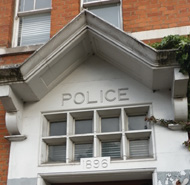Thanks to the Home Office’s ‘light touch approach’ to overseeing police forces, we don’t know if or how police in the UK give value for money, according to a new security funding report by the National Audit Office.
That also means the Home Office does not know if the police are financially sustainable. Likewise Government lacks a long-term plan for policing and gaps remain in its understanding of demand for police services and their costs. The way the Home Office gives funds to police forces has, the report said, been ‘detached from the changing nature of policing for too long, and it cannot be sure overall funding is being directed to the right places’. Estimated total police funding for 2018-19 will be £12.3 billion; plus £728m on counter-terror.
Finding It Harder
While no police force has failed financially, the auditors saw signs that forces are finding it harder to deliver an effective service throughout the UK. As with local government, the law prevents elected police and crime commissioners and forces from running deficits. Any problems caused by less funding are likely to show themselves in a force ‘being unable to provide an adequate policing service’ rather than a financial failure, the NAO said.
For example, the time it took to charge an offence went from 14 days for the year ending March 2016, to 18 days for the year to March 2018. Meanwhile police are under pressure due to terrorism, and what the report called ‘low-volume and high-harm crime, such as sexual offences, which are more costly to investigate’.
Cuts
As for the actual cuts under austerity, the report said forces reduced their police officers by 15pc between March 2010 and 2018 from 143,000 to 122,000; which compared with police community support officers cut by 40pc and other police staff cut by 21pc. The impact of that is ‘not clear’ the report said.
At the risk of stating the obvious, this matters to private security people as response – for example to reported shop theft – may be slower, if it comes at all; particularly as for so-called lower level crime, community support officers were brought in to deal with such crime against business and anti-social behaviour. One way to save money for many years – across the public sector, not just police – has been to privatise. But how to know if that’s wise, without common standards for measuring all demands for police? The Home Office has a fund for ‘transformation’, but the NAO noted that a transformation board has no budget or formal powers.
Comments
For the Association of Police and Crime Commissioners, the APCC chair, West Yorkshire PCC Mark Burns-Williamson said: “The prolonged period in not addressing how the funding formula is allocated has contributed to the uncertainty, along with the overall reductions in central grant, both of which need to be tackled if the overall financial position of policing is to improve.”
As for politics, Home Secretary Sajid Javid, speaking at the Police Superintendents’ Association’s annual conference, said that whilst there are a number of aspects of the new security funding report that he didn’t quite agree with, it rightly recognised the pressures on the police. In his speech he pointed to increases in funding; over £1 billion more in policing than three years ago. Shadow Home Secretary Diane Abbott accused Sajid Javid of trying to hoodwink the public.
About The Billions
Obviously all the money comes from us, but of that £12.3 billion for police this year, central government funded £8.6 billion and local council tax £3.6 billion. The mix varies quite a lot; of the 43 forces, Surrey gets most from council tax, Northumbria most from Westminster. For the 47-page NAO report, visit www.nao.org.uk.










